

Tao Te Ching
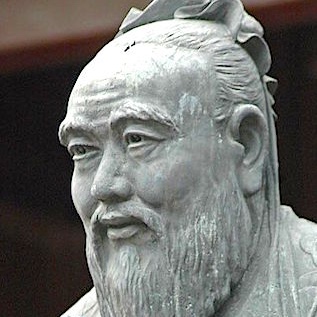
Confucius 孔丘
(Kongzi, Kǒng Zǐ)
551 – 479 BCE
History's most influential "failure"
Probably the most influential failure in history, Confucius wanted to be a political advisor, found only one job doing that but unsuccessfully as was the rest of his life attempts at being an administrator. Early Confucian scholars were killed and their books burned. After he died though, his teaching shaped the next 2300 years of Chinese educational, governmental, and cultural practice. He was the first in recorded history to set up an educational program to train people for governmental roles. Calling himself a "transmitter who invented nothing,” his tradition did not become a religion but instead a non-theistic, humanistic understanding of secular morality that stressed having rulers appointed based on merit rather than birth, rule by personal example rather than fiat, acting out of awareness and experience rather than only following rules.
Eras
Western
Egyptian Civilization (3150 – 305 BCE)Greek Civilization (480 – 146 BCE)
The Axial Age, “The Great Leap of Being” (800 – 200 BCE)
Sources
Unlisted Sources
Life and Teachings of Confucius
Quotes by Confucius (66 quotes)
“A superior man in dealing with the world is not for anything or against anything.”
Chapters:
73. Heaven’s Net
Comments: Click to comment
“As the water shapes itself to the vessel that contains it, so a wise man adapts himself to circumstances.”
Chapters:
8. Like Water
Comments: Click to comment
“At 15, I set my mind and heart on learning. At 30, I stood on my own. At 40 I had no doubts. At 50 I knew heaven’s decree. At 60 my ears were in accord. At 70 I followed the desires of my mind -and-heart.”
Chapters:
2. The Wordless Teachings
Comments: Click to comment
“Be not ashamed of mistakes and thus make them crimes.”
Chapters:
43. No Effort, No Trace
Comments: Click to comment
“Do not do to others what you don’t want done to yourself.”
Chapters:
63. Easy as Hard
Comments: Click to comment
“Give a bowl of rice to a man and you will feed him for a day. Teach him how to grow his own rice and you will save his life.”
Chapters:
59. The Gardening of Spirit
Comments: Click to comment
“Good government is that which resorts least to laws and punishments.”
Chapters:
60. Less is More
Comments: Click to comment
“I do not want a friend who smiles when I smile, who weeps when I weep. My shadow in a pond can do better than that.”
Chapters:
35. The Power of Goodness
Comments: Click to comment
“If there were an honorable way to get rich, I’d do it, even if it meant being a stooge standing around with a whip. But there isn’t an honorable way, so I just do what I like.”
Chapters:
75. Greed
Comments: Click to comment
“If what one has to say is not better than silence, then one should keep silent.”
Chapters:
56. One with the Dust
Comments: Click to comment
“If you look into your own heart, and you find nothing wrong there, what is there to worry about? What is there to fear?”
Chapters:
63. Easy as Hard
Comments: Click to comment
“If your plan is for one year plant rice. If your plan is for ten years plant trees. If your plan is for one hundred years educate children.”
Chapters:
78. Water
Comments: Click to comment
“In a country well governed, poverty is something to be ashamed of. In a country badly governed, wealth is something to be ashamed of.”
Chapters:
53. Shameless Thieves
Comments: Click to comment
“Real knowledge is to know the extent of one's ignorance.”
Chapters:
65. Simplicity: the Hidden Power of Goodness
Comments: Click to comment
“Roads were made for journeys not destinations.”
Chapters:
45. Complete Perfection
Comments: Click to comment
“The green reed which bends in the wind is stronger than the mighty oak which breaks in a storm.”
Chapters:
76. The Soft and Flexible
Comments: Click to comment
“The man who asks a question is a fool for a minute, the man who does not ask is a fool for life.”
Chapters:
67. Three Treasures
Comments: Click to comment
“The man who moves a mountain begins by carrying away small stones.”
Chapters:
64. Ordinary Mind
Comments: Click to comment
“Those who govern with virtue are like the North Star, which remains in its place while the myriad stars revolve around it.”
Chapters:
17. True Leaders
Comments: Click to comment
“To be wealthy and honored in an unjust society is a disgrace.”
Chapters:
18. The Sick Society
Comments: Click to comment
“To be wronged is nothing, unless you continue to remember it.”
Chapters:
79. No Demands
Comments: Click to comment
“To know, is to know that you know nothing, that is the meaning of true knowledge.”
Chapters:
67. Three Treasures
Comments: Click to comment
“To put the world in order, we must first put the nation in order; to put the nation in order, we must first put the family in order; to put the family in order; we must first cultivate our personal life; we must first set our hearts right.”
Chapters:
54. Planting Well
Comments: Click to comment
“We have two lives, and the second begins when we realize we only have one.”
Chapters:
10. The Power of Goodness
Comments: Click to comment
“When a wise man points at the moon the imbecile examines the finger.”
Chapters:
64. Ordinary Mind
Comments: Click to comment
“When in early antiquity Fu Xi ruled the world, he looked upward and contemplated the images in the heavens; he looked downward and contemplated the patterns on earth… He proceeded directly from himself and indirectly from objects. Thus he invented the eight trigrams”
from Ta Chuan: The Great Treatise
Chapters:
33. Know Yourself
Comments: Click to comment
“I hear and I forget. I see and I remember. I do and I understand.”
Comments: Click to comment
“Before you embark on a journey of revenge, dig two graves.”
Comments: Click to comment
“Choose a job you love, and you will never have to work a day in your life.”
Comments: Click to comment
“A sovereign is to be called a sovereign only when he comports himself as a 'true' sovereign should.”
from Analects
Comments: Click to comment
”
from Book of Rites
Comments: Click to comment
“The great mountain must crumble,
The strong beam must break,
And the wise man wither away like a plant.”
Comments: Click to comment
“In their dealings with the world, great people are neither for nor against anyone. They follow whatever is right.”
Comments: Click to comment
“In their dealings with the world, great people are neither for nor against anyone. They follow whatever is right.”
Comments: Click to comment
“Life and Death are indeed changes of great moment but they cannot affect the sage's mind which he lets wander in the moral harmony of things. He does not notice the loss of particular objects.”
Chapters:
1. The Unnamed
Comments: Click to comment
“Do not worry that people do not know you. Worry that you may not be worth knowing.”
Comments: Click to comment
“Admit that you do not know what you do not know—that is knowledge.”
Comments: Click to comment
“When young, beware of the desire to fight. When in manhood, beware of sex. When one has grown old, beware of the desire for possessions.”
Comments: Click to comment
“A man loses his character through the desire for fame... in the struggle for fame, men crush each other”
Comments: Click to comment
“The Tao is what we can never leave. What we can leave isn't the Tao.”
from Chungyung
Comments: Click to comment
“Birds have wings to fly, fish fins to swim, wild beats feet to run and for feet there are traps, for fins nets, for wings arrows. But who know how dragons surmount wind and cloud into heaves? Today I have seen Lao Tzu and he is a dragon.”
Comments: Click to comment
“The superior man thinks of virtue; the small man thinks of comfort.”
from Analects
Comments: Click to comment
“He who learns but does not think is lost. He who thinks but does not learn is in great danger.”
from Analects
Comments: Click to comment
“Wisdom means when you know something, recognizing that you know it; when you do not know, recognizing that you don't know.”
from Analects
Comments: Click to comment
“One who is by nature daring and is suffering from poverty will not long be lawful.”
from Analects
Comments: Click to comment
“In vain have I looked for one whose desire to build up his moral power was as strong as his sexual desire.”
from Analects
Comments: Click to comment
“When a student asked Confucius about returning good for evil, he replied: 'With what then will you recompense kindness? Return good for good, and for evil, justice.'”
Comments: Click to comment
“I know how birds can fly, fishes swim, and animals run. But the runner may be snared, the swimmer hooked, and the flyer shot by the arrow. But there is the dragon—I cannot tell how he mounts on the wind through the clouds, and rises to heaven. Today I have seen Lao Tzu, and can compare him only to the dragon.”
from Life and Teachings of Confucius
Comments: Click to comment
“The time of long ago is just like the present. Actually there is no such thing as long ago and the present or the beginning and the end... Both life and death are dependent on something else and find their unity elsewhere.”
Chapters:
40. Returning
Comments: Click to comment
“We do not yet know how to serve man, how can we know about serving the spirits?”
Comments: Click to comment
“We don't know yet about life, how can we know about death?”
Comments: Click to comment
“From the time that Duanmu Ci arrived, scholars from a distance came daily resorting to me.”
Comments: Click to comment
“When anger rises, think of the consequences.”
Comments: Click to comment
“It is impossible to withdraw from the world and associate with birds and beasts that have no affinity with us. The disorder that prevails is what requires my efforts. If right principles ruled through the kingdom, there would be no necessity for me to change its state.”
Comments: Click to comment
“Surely it is the maxim of loving-kindness: Do not unto other that you would not have them do unto you.”
from Analects
Comments: Click to comment
“Tradesmen that would perfect their work must first sharpen their tools.”
Comments: Click to comment
“He who hears the Tao in the morning can die in the evening.”
Comments: Click to comment
“Water and fire compensate each other,
Thunder and Wind do not disturb each other,
Mountain and Lake are dependent on each other
Thus change and transformation become possible,
And all things become completed.
”
Comments: Click to comment
“I have not yet seen one who could perceive his faults, and inwardly accuse himself.”
Comments: Click to comment
“Our greatest glory is not in never falling but in rising up every time we fall.”
Comments: Click to comment
“In ancient times the holy sages made the Book of Transformations thus: By thinking through the order of the outer world to the end, and by exploring the law of their own nature to the deepest core, they arrived at an understanding of destiny... Each of these trigrams gives another proportion in the mixing of the light and the dark... the unchangeable polarizations of forces in the universe.”
Comments: Click to comment
“If your conduct is determined solely by considerations of profit you will arouse great resentment.”
Comments: Click to comment
“The noble-minded are principled, but never dogmatic.”
Comments: Click to comment
“He who requires much from himself and little from others, will keep himself from becoming the object of resentment.”
from Analects
Comments: Click to comment
Quotes about Confucius (19 quotes)
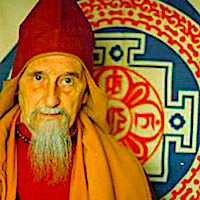
“Confucius saw in their wisdom a guide for statesmen, prime ministers and people like that. So his commentaries are very much concerned with how a man who has mastered the I Ching and mastered himself can be of use to his emperor or ruler in helping him to guide the State.”
Comments: Click to comment
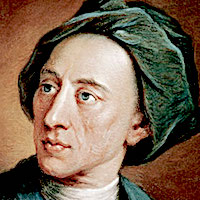
“Superior and alone, Confucius stood
Who taught that useful science,—to be good.”
Comments: Click to comment
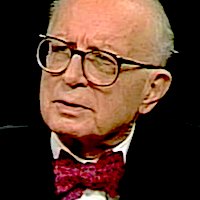
“Among the great creators, the great spokesmen of ethical ideals, none is more miraculous than Confucius himself. He claimed no divine source for his teachings nor any inspiration not open to everyone… he proclaimed no Commandments and it is easy to see him as an ancient Don Quixote. But his lifelong, unsuccessful tilting against the evils of the chaotic Chinese states of his day somehow awakened his people and eventually commanded two thousand years of Chinese culture.”
Comments: Click to comment
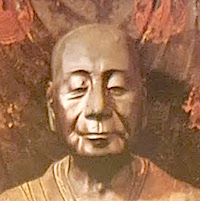
“When we asked our school teacher why he took naps, he said 'Like Confucius who dreamed about ancient sages, I go to dreamland and meet them.' When we took naps however he would get angry so we told him that we also went to meet Confucius and the sages. When he challenged us asking what they said, one of us told him, 'We asked them if our schoolmaster met them every afternoon but they said they had never met any such fellow.'”
Comments: Click to comment
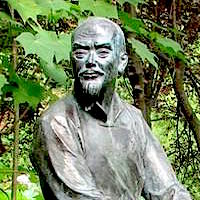
“No one knows the art of living better than Confucius. I know that because he did not sleep like a corpse or sit like a statue.”
Comments: Click to comment

“Like Confucius of old, I am absorbed in the wonder of earth, and the life upon it, and I cannot think of heaven and the angels. I have enough for this life... a faith in the human heart and its power to grow toward the light, I find here reason and cause enough for hope and confidence in the future of mankind.”
Comments: Click to comment
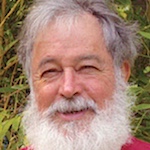
“China's most revered teacher of doctrines emphasizing the harmony of human relations. His teachings, along with those of certain disciples... until recently formed the basis of moral education in China.”
Comments: Click to comment
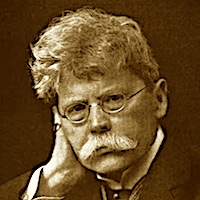
“One of he essential figures to be considered in connection with any history of China… There can be do doubt that Confucius has had a greater influence on the development of the Chinese national character than many emperors taken together.”
Comments: Click to comment
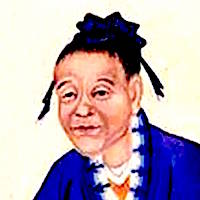
“The world has known innumerable princes and worthies who enjoyed fame and honor in their day but were forgotten after death, while Confucius, a commoner, has been looked up to by scholars for ten generations and more. From the emperor, princes and barons downwards, all in China who study the Six Arts take the master as their final authority. Well is he called the Supreme Sage!”
Comments: Click to comment
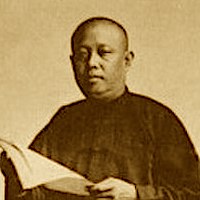
“The differences between Confucius and Lao Tzu are no more significant than the preference for wheat in North China and rice in the South.”
Comments: Click to comment
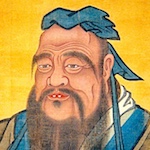
“Like a rain pool compared to an ocean, sages are also the same in kind but stand out from and rise above the others. And from the birth of mankind until now, there never has been another Confucius.”
Comments: Click to comment
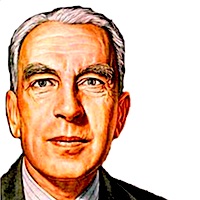
“This burst of spiritual activity... the Confucian humanism of the 5th century BCE... was ephemeral. It degenerated from a study of human nature into a system of ritualized etiquette. In the administrative sphere it became a tradition that every administrative act required the sanction of historical precedent.”
Comments: Click to comment
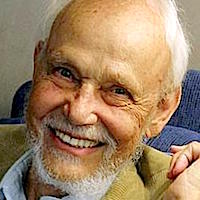
“Confucius stresses social responsibility, Lao Tzu praises spontaneity and naturalness… Confucius roams within society, Lao Tzu wanders beyond.”
Comments: Click to comment
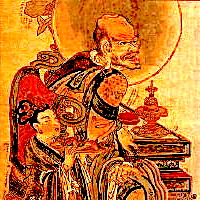
“Though you have talent, do not trust in it. Confucius himself was unsuited to his times... Do not trust in promises. Truth is rare.”
Comments: Click to comment
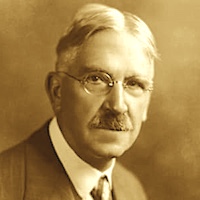
“As I read Plato, philosoply began with some sense of its essentially political basis and mission—a recognition that its problems were those of the organization of a just social order. But it soon got lost in dreams of another world.”
Comments: Click to comment

“a moral philosopher rather than a preacher of religious faith [Confucius] far more resembles Socrates than Jesus… His followers foresaw the timeless influence he was to have in molding the courtesy and poise and placid wisdom of the Chinese.”
Comments: Click to comment
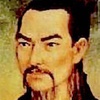
“when Confucius was starving and in trouble, he did not hesitate to grab at anything at all to keep himself alive; but, when he was satiated, he behaved hypocritically in order to appear refined. What greater vileness and hypocrisy could there be.”
Comments: Click to comment

“I must confess that I am unable to appreciate the merits of Confucius. His writings are largely occupied with trivial points of etiquette, and his main concern is to teach people how to behave correctly on various occasions. When one compares him, however, with the traditional religious teachers of some other ages and races, one must admit that he has great merits... It certainly has succeeded in producing a whole nation possessed of exquisite manners and perfect courtesy. Nor is Chinese courtesy merely conventional; it is quite as reliable in situations for which no precedent has been provided.”
Comments: Click to comment
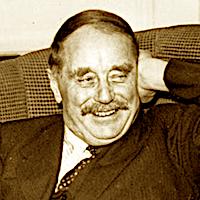
“His life has some interesting parallelism with that of some of the more political of the Greek philosophers... He was far more of a constructive political thinker than the Buddha or Lao Tzu. His mind was full of the condition of China, and he sought to call the Aristocratic Man into existence very largely in order to produce the noble state.”
Comments: Click to comment
Comments (0)